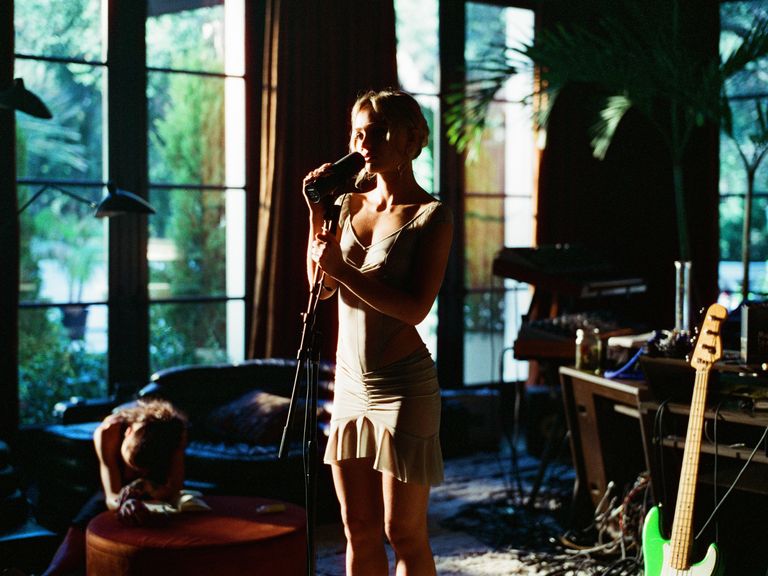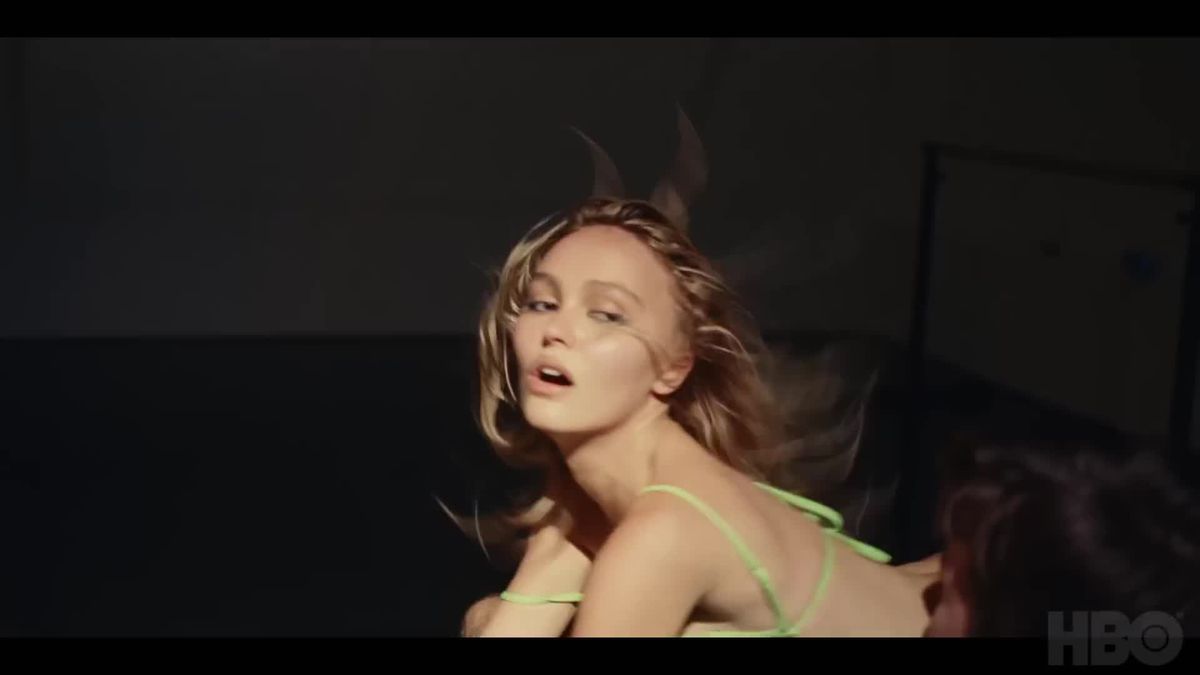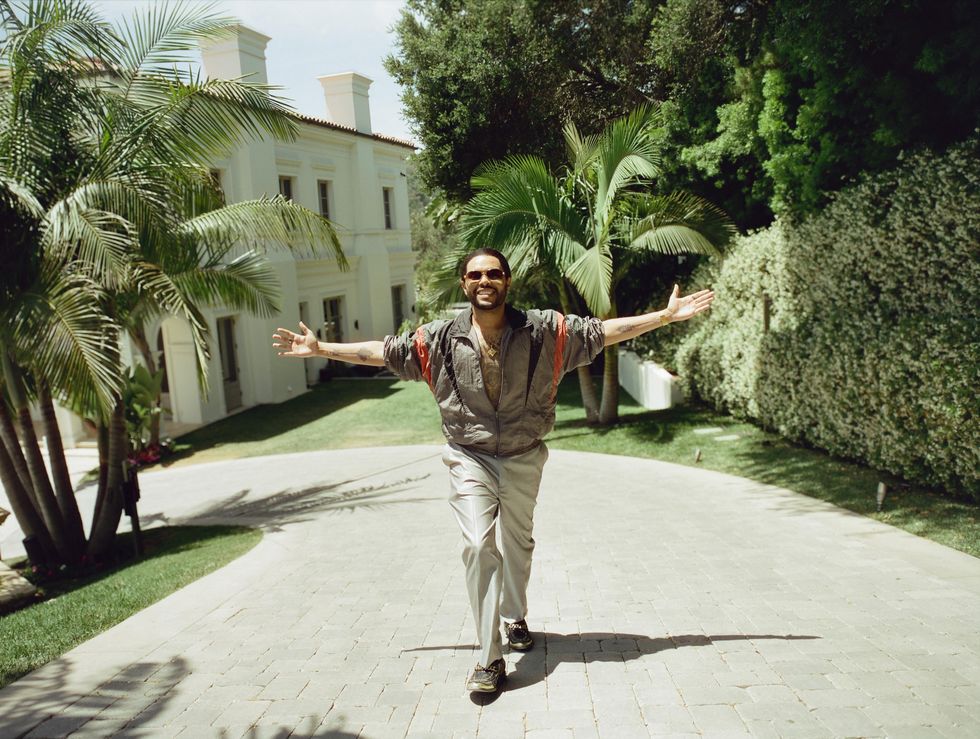It proved strange timing for The Idol, a show about a huge, young pop star, that actual huge, young pop star Olivia Rodrigo released her new single, “Vampire”, the Friday before this weekend’s finale. That song, co-written by Rodrigo and frequent collaborator Dan Nigro, charts the lows and lows of falling in with a vampiric, blood-sucking tormentor. “I see the parties and the diamonds sometimes when I close my eyes,” Rodrigo whispers, with the threat of an unfailing assassin, “six months of torture you sold as some forbidden paradise.” It was hard not to think of those lines, if you were indeed one of millions of people who streamed the single, while watching The Idol’s finale, in which Jocelyn (Lily-Rose Depp) finally throws off the shackles of cult leader and supposed star marker Tedros (Abel “The Weeknd” Tesfaye). Or… did she?
The twist – and to call it a twist undermines the artistic venture we know as twists – is that Jocelyn has been controlling Tedros all along. We learn this with about ten minutes to go, just as everything seems to have been sorted out: the Vanity Fair journalist Talia (Hari Nef, working to enviable deadlines) has written an exposé of Tedros, Jocelyn’s tour is back on, harried assistant Leia (Rachel Sennott) has handed in her notice. And then, just as Jocelyn is about to take to the stage, she invites Tedros backstage. He appears, tail between his legs, and realises that he has been played for a fool: Jocelyn has taken his stars for tour openers (I cannot stress how average they are) and strung him along with fake stories (that hair brush and Jocelyn’s red scarf are neat call backs). She takes him on stage, introduces him to the world as her love, and tells him to stand over there. Like, just over there, in the corner, thank you.
Does it work? It certainly puts some of the season’s acting choices into context: Tesfaye’s hesitant, brittle performance makes a lot more sense. In these final minutes, he pulled off a newly chastened Tedros. And one of the virtues of Depp was an ambiguity: at times a brazen pop star, and at others, a wounded adolescent. As Depp told Deadline about the finale, “Jocelyn is a very calculated and strategic person.” I believe that in her performance, and I also believe the actor’s reasoning: “Throughout the season, Jocelyn has been searching for inspiration. She’s looking to go to an uncomfortable place, and it’s just ultimately looking for that next song, that next album, Tedros becomes the conduit for that creative unlocking.”
It is an intriguing premise, which The Idol fumbles. Everything in this season finale, from Jocelyn’s “fuck yous” to an unfinished storyline about her ex potentially being framed for rape, feels impossibly rushed. A twist, of course, can come out of nowhere – the best ones often do! – but the show is not confident enough to pull it off. We will likely never know the extent of The Idol’s behind-the-scenes drama, but the fluctuating number of episodes would suggest that there was a lot of last-minute editing, and an uneven pace does little to dispel that. It is impossible not to wonder whether director Amy Seimetz, kicked out during a creative overhaul, would have delivered the twist more successfully (she would have). Instead, we are left with a twist that gestures at something sinister, but too faintheartedly to make it compelling.
It has also become increasingly hard to take Tesfaye or his co-creators (Euphoria’s Sam Levinson and Reza Fahim) in good faith. While many of the industry insights are surely accurate and startling, plot machinations have become tedious: a roving list of targets for the whatever is annoying the co-creators that week. First in line were intimacy co-ordinators, and in a deleted scene tweeted out by Tesfaye, Rolling Stone (and by association, print media?) took a hit. Whatever the show was attempting to say about sexual abuse allegations sounds impossibly dull and misplaced. None of those topics should be off-limits, but they are crying out for a better show to explore them. Certainly The Idol’s surface-level writing doesn’t serve them well. If there is to be a second season, and there is enough good material to warrant that, those instincts should be retrained.
The Idol is the chocolate soufflé you plan for the show stopping end of a dinner party: you have all the right ingredients, you have read the instructions about how to make a soufflé, and yet, with five minutes to go (I do not know how long it takes to cook a soufflé), and a living room full of guests you want to impress, your soufflé does not rise. You are left with disappointment, and few options. Do people really need pudding? Or are they happy to call it a night?
The Idol is available on Sky Atlantic and NOW
Henry Wong is a senior culture writer at Esquire, working across digital and print. He covers film, television, books, and art for the magazine, and also writes profiles.














